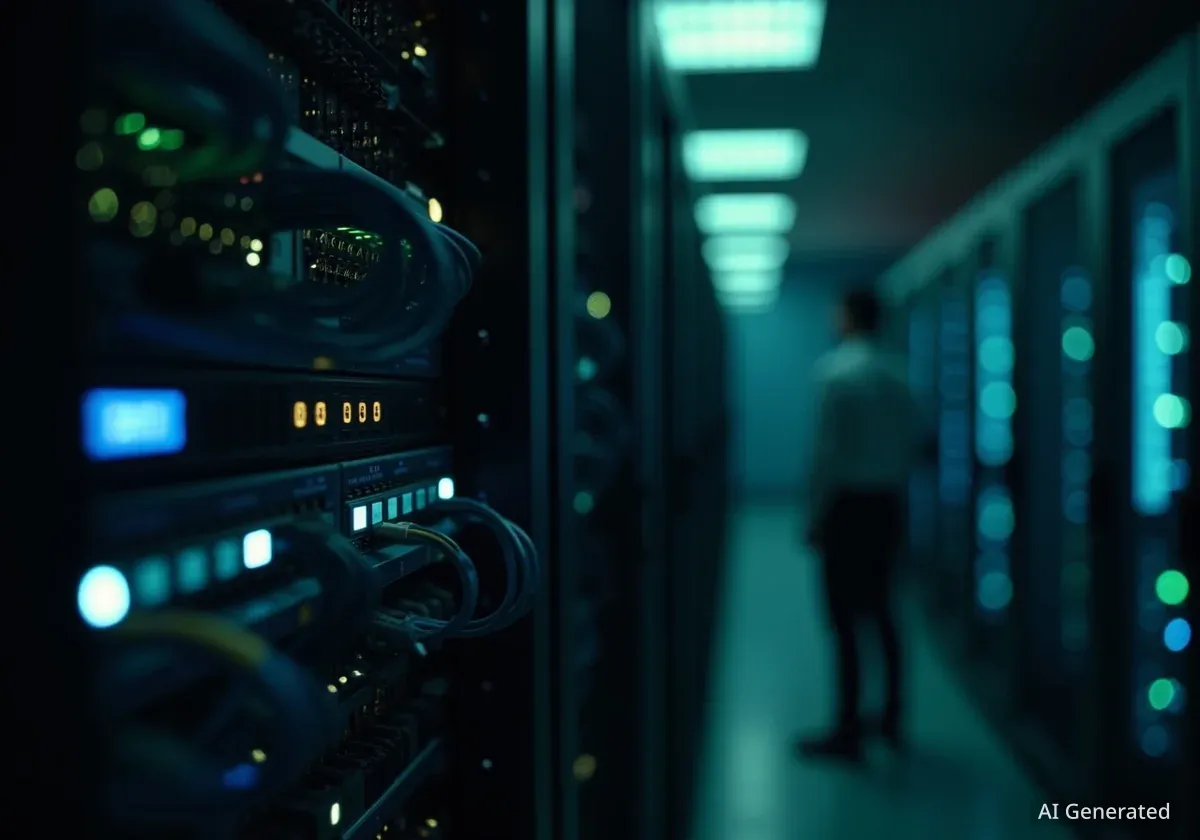The European Union is developing a comprehensive legal framework, known as the EU Space Act, to address the growing cybersecurity risks facing the global space industry. This new legislation aims to establish mandatory security standards for both satellites in orbit and the ground-based infrastructure that supports them, responding to a new era of threats highlighted by recent cyber attacks.
As commercial companies launch vast satellite constellations, the digital vulnerabilities of this critical infrastructure have become a major concern for international security. The proposed regulations seek to modernize laws written decades before the current digital age, placing new responsibilities on satellite operators and manufacturers to ensure the resilience of their systems.
Key Takeaways
- The European Commission has proposed the EU Space Act to create a unified legal framework for space activities, with a strong focus on cybersecurity.
- The act will introduce mandatory, space-specific security requirements for all operators providing services within the EU market, regardless of their location.
- Existing international space laws, like the 1967 Outer Space Treaty, are considered inadequate for addressing modern cyber threats.
- The 2022 cyber attack on the Viasat satellite network demonstrated the vulnerability of ground systems and the wide-ranging impact such incidents can have.
- The new regulations are part of a broader EU effort to secure digital supply chains, which also includes the NIS2 Directive and the Cyber Resilience Act.
The Shifting Landscape of Space Security
For many years, the primary focus of the space industry was on the engineering challenges of launching and operating spacecraft. Today, the sector has transformed into a vital part of the global economy, supporting everything from financial transactions and logistics to communications and national defense. This increased reliance has created a new and significant attack surface for cyber threats.
The proliferation of commercial satellite networks has introduced unprecedented opportunities but also exposed critical vulnerabilities. Securing these space assets is no longer just a technical issue; it has become a matter of strategic importance for nations around the world. The fundamental challenge has evolved from simply reaching space to securing the infrastructure once it is there.
Outdated International Laws
The current international legal framework for space was established in the 1960s and 1970s. The foundational document, the Outer Space Treaty of 1967, was designed to govern physical objects and kinetic actions, not malicious software or digital attacks. Its principles on state responsibility and liability are difficult to apply to cyber operations, creating a significant legal gap.
This legal vacuum has made it difficult to hold actors accountable for cyber attacks in space. The proposed EU Space Act represents a significant attempt to fill this void with binding regional regulations, which could set a new global standard for the industry.
A Landmark Regulation: The EU Space Act
The European Commission's proposal for an EU Space Act is set to be one of the most important developments in space law in decades. It aims to create a single, harmonized legal system for all space activities conducted across the European Union. A central component of this legislation is its focus on resilience and cybersecurity.
The act's 'Resilience' pillar will establish a mandatory cybersecurity framework tailored specifically for the space sector. This acknowledges that generic information technology security rules are not sufficient for the unique operational environment of space. Satellite operators will be subject to legally binding duties similar to those in other critical sectors like finance and energy.
Key Requirements of the EU Space Act
- Comprehensive Risk Assessments: Operators must conduct 'all-hazards' risk assessments that cover their entire supply chain, from component manufacturers to ground station providers.
- Mandatory Security Controls: Specific security measures will be required to protect both space and ground segments from cyber threats.
- Incident Reporting: Strict requirements will be put in place for reporting security incidents to regulatory authorities in a timely manner.
Global Reach and the 'Brussels Effect'
One of the most significant aspects of the proposed EU Space Act is its extraterritorial scope. The regulations will not only apply to companies based in the European Union but also to any non-EU operator that provides space services to the European market. This principle is often referred to as the 'Brussels Effect,' where EU regulations effectively become international standards because global companies must comply with them to access the large EU market.
"This ‘Brussels Effect’ could compel US, UK, and other international operators to align their global operations with the EU's high standards to maintain market access, effectively setting an international baseline for compliance."
This approach could force companies worldwide to adopt the EU's stringent cybersecurity standards across all their operations. For businesses, this means that cyber resilience is becoming a core requirement for market access and a central element of corporate liability.
The Viasat Attack: A Wake-Up Call
The urgency for new regulations was underscored by the February 2022 cyber attack on the Viasat satellite network. The incident did not target a satellite in orbit but instead compromised its terrestrial ground systems. The consequences were immediate and widespread, disrupting military communications in Ukraine and disabling remote monitoring for thousands of wind turbines across Europe.
The attack served as a stark reminder that the greatest vulnerabilities in space systems often reside on Earth. It also highlighted the dual-use nature of modern satellite constellations. A system like Starlink, for example, functions as both a private internet service and a critical piece of military-enabling infrastructure, as seen in its role during the conflict in Ukraine.
This convergence of commercial and military interests creates a dangerous dynamic. A cyber attack on a commercial satellite system could be interpreted as a strategic strike on a nation's critical infrastructure, potentially leading to military escalation.
The Challenge of Attribution
A major obstacle in holding perpetrators accountable is the problem of attribution. It is extremely difficult to prove definitively which state or non-state actor is responsible for a cyber attack. This 'accountability gap' allows states to use proxy groups to conduct attacks with plausible deniability, leaving victims with little legal recourse under current international law.
Adversary nations now openly view commercial satellite systems as potential military targets and are developing cyber capabilities to disrupt or disable them. This new reality means that the security of a private company's assets is now linked to the national security of multiple countries.
Navigating a New Regulatory Environment
The forthcoming EU Space Act is part of a multi-layered regulatory framework being established by the European Union to enhance cybersecurity across all critical sectors. This includes several other key regulations that will impact the space industry:
- NIS2 Directive: This directive strengthens cybersecurity requirements for operators of essential services.
- Cyber Resilience Act (CRA): This act imposes security obligations on manufacturers of products with digital elements.
- AI Act: This regulation establishes rules for the development and deployment of artificial intelligence systems.
Together, these regulations create an interlocking system of legal accountability that spans the entire value chain, from hardware manufacturers to service providers. The onus for security is being placed squarely on the companies that build and operate these systems.
For businesses operating in the space ecosystem, this represents a fundamental shift. They must now adopt a multi-jurisdictional compliance strategy and integrate a 'security-by-design' philosophy into their operations. Cyber resilience is no longer just an IT cost but a strategic necessity for survival and growth in an increasingly contested domain.
While the EU's new laws are a significant step forward, they do not solve the underlying geopolitical challenges. The next critical task for the international community will be to bridge the gap between strong regional regulations and the outdated global legal order to ensure a secure and stable environment for all space activities.





